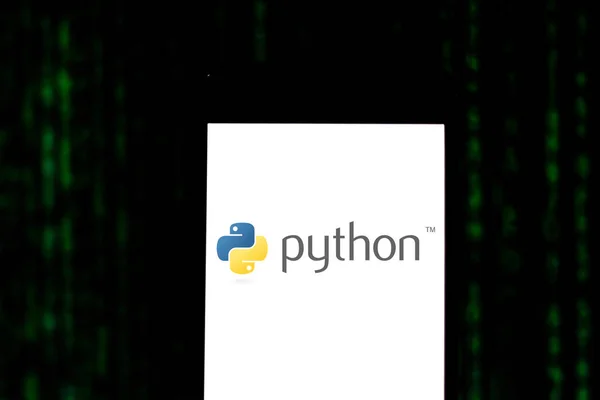
The demand for skilled Python developers is continually growing in an ever-evolving technological landscape. To help recruiters and tech talent acquisition professionals navigate this challenging process, we've created this comprehensive guide covering everything from job requirements to interview questions. Let's explore how to hire the best Python developers in 2023.
Identifying the Essential Skills for Python Developers
A skilled Python developer should possess a combination of technical and soft skills:
Technical Skills
1. Strong foundation in Python programming
2. Familiarity with popular Python frameworks (Django, Flask)
3. Database knowledge (SQL, NoSQL)
4. Proficiency with version control tools (Git)
5. Experience in web development and working with APIs
Soft Skills
1. Problem-solving and critical-thinking abilities
2. Strong communication skills
3. Effective teamwork and collaboration
These skills form the foundation for a successful Python developer, allowing them to adapt and excel in various projects and environments.
Jotting down a clear Job Description for Python Developers
An effective job description should clearly outline the responsibilities and expectations for the Python developer role. Be sure to specify the required skills and qualifications, such as years of experience, education, and certifications. Offering a competitive salary and benefits package is vital to attracting top talent. Additionally, highlight any remote work opportunities and flexible work arrangements that your organization offers.
More than 60% of candidates applying for jobs via online portals, attracting the perfect candidate's attention comes down to how well you write the job description.
Learn the best practices on "How to Write an Effective Job Description"
Evaluating Python Developer Resumes
When reviewing resumes, pay close attention to candidates' relevant experience and past projects. A well-rounded portfolio can provide insight into their capabilities and the diversity of their skills. Keep an eye out for any certifications or participation in coding competitions, as these can indicate a candidate's dedication to their craft.
Conducting Effective Interviews
Prepare a mix of technical, behavioral, and situational questions for the interview to gain a holistic understanding of the candidate's skills and personality. Including coding challenges or pairing them up with programming exercises can help you evaluate their coding proficiency and problem-solving approach.
Preview some of these sample questions that test conceptual understanding, and the coding challenges test if candidates can solve a problem programmatically.

Hiring for Machine Learning and Data Scientist roles? You fully bank on our vast Question Banks to create a test within minutes and never scratch your head to ask the right questions to your candidates.
Assessing the candidate's cultural fit and soft skills is equally important, as these factors contribute to a successful working relationship. For example, if the company values teamwork, a personality test that assesses teamwork skills may be a good fit.
Finding Python Developers with Specialized Skills
In an increasingly data-driven world, Python developers with artificial intelligence (AI) and data engineering expertise are highly sought after. To find these specialists, identify candidates with relevant projects in AI and data engineering. During the interview, include additional questions that assess their specialized skills and experience in these areas.
Tips for Attracting Top Python Developer Talent
Attracting top Python developers to your organization goes beyond just offering competitive compensation. Consider these strategies to make your company stand out:
1. Emphasize growth and learning opportunities: Highlight any training programs, mentorship, and opportunities for professional development that your organization offers.
2. Showcase your company culture: Provide a glimpse into your company culture, values, and work environment through social media, blog posts, and employee testimonials.
3. Participate in industry events: Attend or sponsor tech conferences, meetups, and hackathons to network with potential candidates and showcase your organization as an industry leader.
4. Leverage employee referrals: Encourage current employees to refer skilled developers within their network by offering incentives and referral bonuses.
Onboarding and Retaining Top Python Developers
Once you've found and hired the best Python developers, it's crucial to ensure their smooth onboarding and retention:
1. Implement a structured onboarding process: Properly introduce new hires to the team, provide necessary training, and set clear expectations to set them up for success.
2. Offer opportunities for career growth: Encourage continuous learning and provide opportunities for developers to advance within the organization.
3. Provide regular feedback and recognition: Conduct performance reviews that help them measure and give them actionable feedback to keep improving their strengths and weakness to ensure their growth is aligned with the company's vision and goal.
Final Takeaway
By following this comprehensive guide, recruiters and tech talent acquisition professionals can streamline the process of hiring top Python developers. From crafting an appealing job description to conducting effective interviews, each step is crucial to securing the best talent for your organization. Remember, investing time and effort in the hiring process pays off in the long run by bringing exceptional Python developers on board.
You can shortlist Python Developers using Equip's assessments. Check out our guide to what to look for while hiring Python Developers, skills to test, capabilities based on experience level, sample questions and a ready-to-use Python Developer assessment on Equip.
Hiring a Python Developer Checklist
